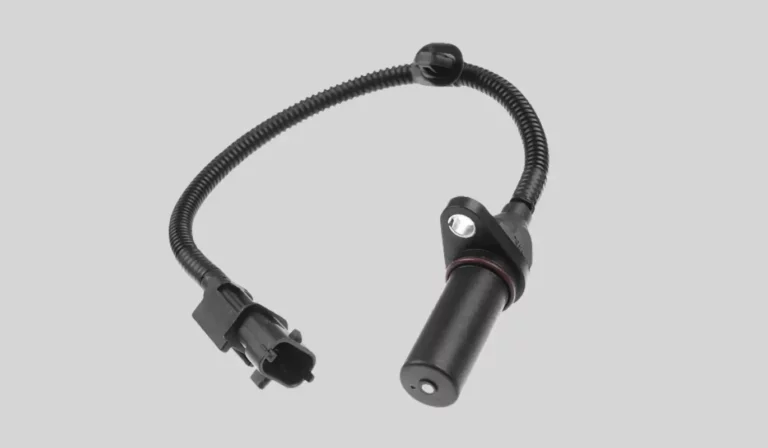Why Can’t You Go Back to Regular Oil After Synthetic
While owning a car is a form of luxury, it doesn’t come with all conveniences, rather takes some maintenance and care. If you’re well aware of that, you already know how important it is to change the engine oil from time to time. Keeping that in mind, most people’s go-to is either regular oil or synthetic. However, once you use synthetic, it becomes tough to go back to regular. So, why can’t you go back to regular oil after synthetic?
It’s not recommended to go back to regular oil after synthetic because it has different physical properties compared to regular oil. It’s more denser and slippery, which makes it dangerous for conventional engine use as it can cause leaks, wear and tear. Plus, synthetic oil offers greater benefits than regular oil.
However, it varies from engine to engine depending on which oil is more suitable. Even when it’s preferable to use synthetic over regular, you must know if it’s suited for your vehicle. To know, keep reading.

Why Can’t You Go Back to Regular Oil After Synthetic? Major Reasons Why!
The type of oil you use for your vehicle highly depends on the type of use. Since changing engine oil falls under servicing, which is mandatory for the maintenance of your car, it’s only normal that you might be switching from regular to synthetic oils.
However, in most cases, it’s advised not to switch back to regular for the following reasons-
The Difference in Properties: Synthetic has Better Properties
In terms of medium, synthetic oil is made of better properties compared to regular or conventional oil. It’s denser, thicker, and even smoother, which adapts itself to almost any engine. Hence, synthetic has better properties because-
- Synthetic oil has a lot of chemical additives of about 20%, whereas regular oil only has basic additives. As a result, the advanced additives of synthetic drugs play a big role in increasing fuel efficiency and preventing wear and tear.
- Compared to regular, synthetic oil contains lesser impurities in its oil base, which decreases the possibility of engine damage.
- Synthetic oil has better viscosity levels, which helps it flow easily throughout the entire and offers wider temperatures. On the other hand, regular oil has less effective temperature control for its varying viscosity level.
- It offers more resistance to oxidation and breakdown for better properties.
Related Post: Reasons Why Oil In Coolant Reservoir But Car Not Overheating
Better Engine Protection: Synthetic Creates a Protective Engine Barrier
Since synthetic oil consists of advanced additives, its oil base is much stronger than that of regular. It protects the engine from heavy damage by-
- Provides more lubrication, which enables the engine to run smoother and prevents wear and tear.
- Using synthetic oil over time leaves traces of a protective barrier around the engine, which is not possible to be replicated by regular oil.
Keep in mind the Manufacturer’s Recommendations
It is important to understand the importance of what your manufacturer’s recommendations are for the welfare of your vehicle. Not all vehicles are suitable for one type of oil. For instance, if your manufacturer recommends the car model you have should be operated on synthetic oil, you shouldn’t switch if you were using regular oil earlier.
Not using the correct type of oil will not only bring quick damage to your car but also decrease its performance drastically.
Compatibility: Synthetic Oil is not Compatible with Every Conventional Oil.
If you were using regular oil in a conventional engine initially, that’s fine. However, If you switch to synthetic oil, it will not stop or damage your vehicle. However, synthetic oil isn’t always compatible with conventional oil.
That means, if you switch back to regular oil after synthetic, it will lead to engine wear and tear and drastically decrease engine optimization.
Environmental friendly: Synthetic is more Environmentally Friendly
Since synthetic oil is made up of better properties, it lasts longer and gives you the benefit of not going through the inconvenience of changing oils more often. And this means the oil wastage is less when you’re using synthetic oil.
This scenario makes it more environmentally friendly compared to regular as conventional oils are supposed to change from time to time and require more oil usage, which contributes to waste and pollution.
Shelf Life: Synthetic Oil has Longer Shelf life Compared to Regular Oil
Synthetic oil is made with advanced properties, which allows it to offer more features to your car, in this case, longer shelf life. Your car will run longer in synthetic because-
- In terms of molecular structure, synthetic has a more stable foundation for having a base oil of almost 80%. This means it’s immune to breaking down. As a result, when exposed to high temperature or oxygenation, it doesn’t lose its effectiveness.
- Compared to regular oil, synthetic oil has very less impurities in its structure. Regular oil contains more impurities, which causes oxidation and degradation over time. This won’t happen when you’ll use synthetic for its purified properties.
- Synthetic’s consistent viscosity index, helps create better resistance and maintains temperature. This way uncalled-for wear and tear is prevented, which is a major win.
Texture and Appearance: Noticeable Changes When Oils are Switched
When you use synthetic oil for long enough, it’s obvious it’s going to leave its mark in some ways, and it does. This oil has a different denser consistency and color compared to regular oil.
Thus, when you switch back to regular oil, you’ll see a noticeable difference in the texture and Appearance of the oil, which might not be to your liking.
Personal Use: Subjective Preference
Since synthetic oil offers more properties and features, it’s only normal that you and your vehicle have adapted to it. The convenience of not changing oils too often or even preventing less damage can pull you more to the Synthetic usage side.
However, it’s solely subjective and depends on preference. In most cases, people don’t usually want to go back to using regular oil after they’ve got the taste of synthetic.
Benefits of Using Synthetic Oil Instead of Regular Oil
Using synthetic oil brings more Merrie’s to your engine than you think. Synthetics offer more benefits than regular oil, which is why it’s hard to switch back to regular. Some of these benefits are-
- High performance: good viscosity levels, the ability to reduce temperature, and good chemical properties of the synthetic oil give your engine a premium edge of increased endurance, power, and reliable engine.
- Withstands high levels of heat: Synthetics can endure a considerable amount of heat compared to regular. This means, when you’re driving for a long time, your engine won’t face damage even if it’s heated.
- Performs better in cold temperatures: In cold or extreme weather conditions, engines need cold protection. Synthetic oils have good low-temperature flow features. This helps provide better engine protection in cold weather when temperatures fall. It’s also easier to pump and can handle cranking even at temperatures under -40°C.
- Prevents dirt and debris: synthetic doesn’t let in dirt and debris in the internal engine and prevents deposits or sludge from building up in the engine.
- Reduced engine wear: Synthetic oil prevents harsh chemicals and abrasive chemicals from building up in the engine, which drastically reduces regular engine wear and tear.
- Improved fuel economy: for better viscosity and lubrication properties, the engine runs smoother and has a better fuel economy.
- Convenient usage and environmentally friendly: synthetic oil is quite reliable and doesn’t need you to change much. This reduces the inconvenience of changing oils drastically and oil wastage, which is environmentally friendly.
- High loads: premium synthetic oils with added additives have the capability of staying consistent when going through long hills, slow speed, or towing. It can withstand the load and the oil base will not thin out like the other oils.
- Longer engine life: synthetic oil is reliable, protects the engine, prevents damage or sludge, and can withstand high temperatures. All of these features give your engine a longer shelf life.
What Should You Use? Synthetic or Regular Oil?
While it’s mostly considered a good idea to switch to synthetic oil, that doesn’t necessarily mean that everyone should use synthetic oil. It depends on the type of car you’re using and also your preferences.
It’s recommended to use synthetic oils when-
- You purchased a new vehicle as it requires a high mileage and provides better protection.
- You live in a hot area with high temperatures as synthetic oil has better flow in high temperatures.
- You frequently go through adventures or heavy loads as this oil provides better lubrication and reduces damage.
On the other hand, you should use regular oil, when you
- Use older vehicles as using synthetic might not be able to adapt to your engine.
- If cost is an issue. That’s because synthetic oils can be expensive.
Frequently Asked Questions (FAQs)
Can you switch from synthetic to regular?
Yes, you can. Even though synthetic oils offer better performance and protection that doesn’t mean you can’t go back to regular oil at all. However, be wary of your engine’s condition and consult a mechanic if needed.
Do engines last longer with synthetic oil?
Simply put, yes, compared to regular oil, synthetic oil lasts longer. It provides engine protection, reduces wear and tear, requires fewer oil change intervals, and withstands high temperatures, which makes your engine last longer.
How many km is synthetic oil good for?
Synthetic oil is good for high mileage and goes well for around 10,000-15000 Km. This oil is more efficient and can withstand more heat compared to regular oil, which is why it keeps going for a good amount of kilometers.
Final words
When you’ve switched to synthetic oil after using regular oil for a long time, it’s normal to be confused about Why can’t you go back to regular oil after synthetic oil. Even though regular oils are less expensive, synthetic oils offer much more, which is why most users prefer synthetic oils.
Now that you know all the benefits of synthetic oil, it will help you decide whether you want to stick to regular or synthetic oil. However, if you don’t have an old vehicle, we recommend synthetic oil!




